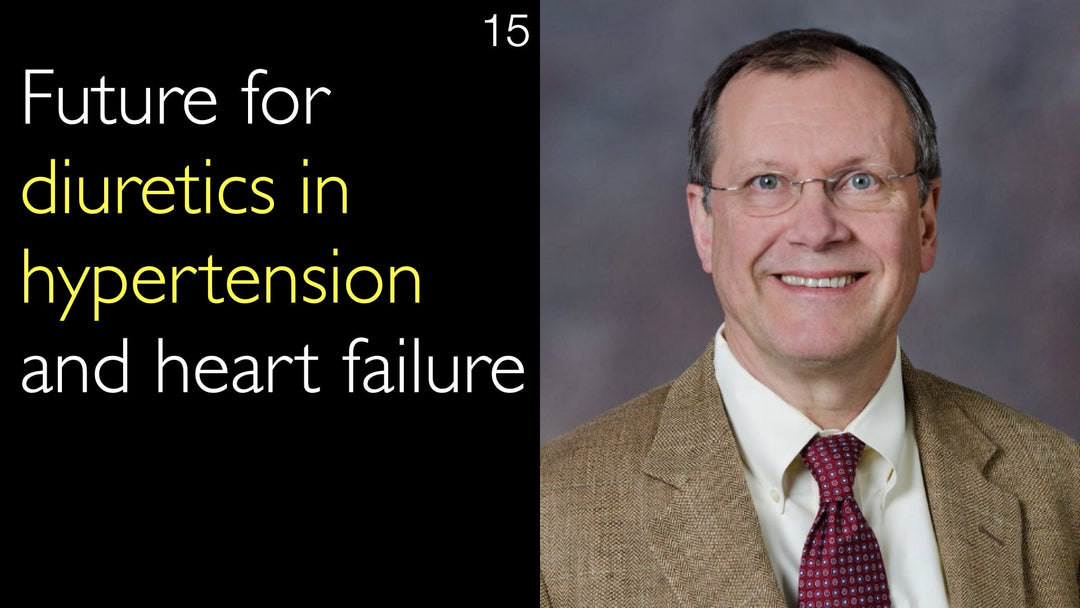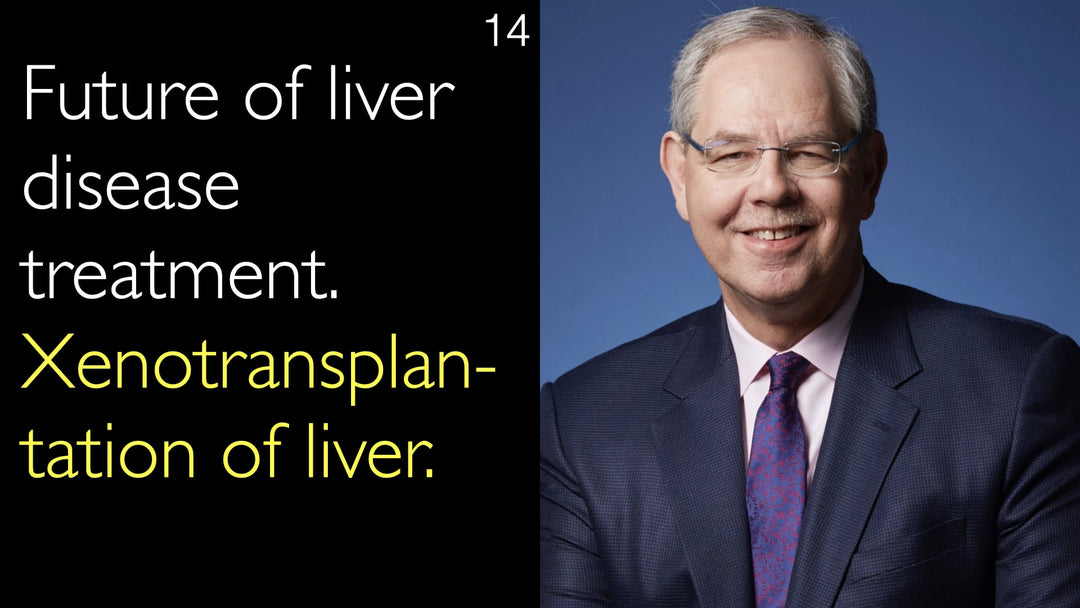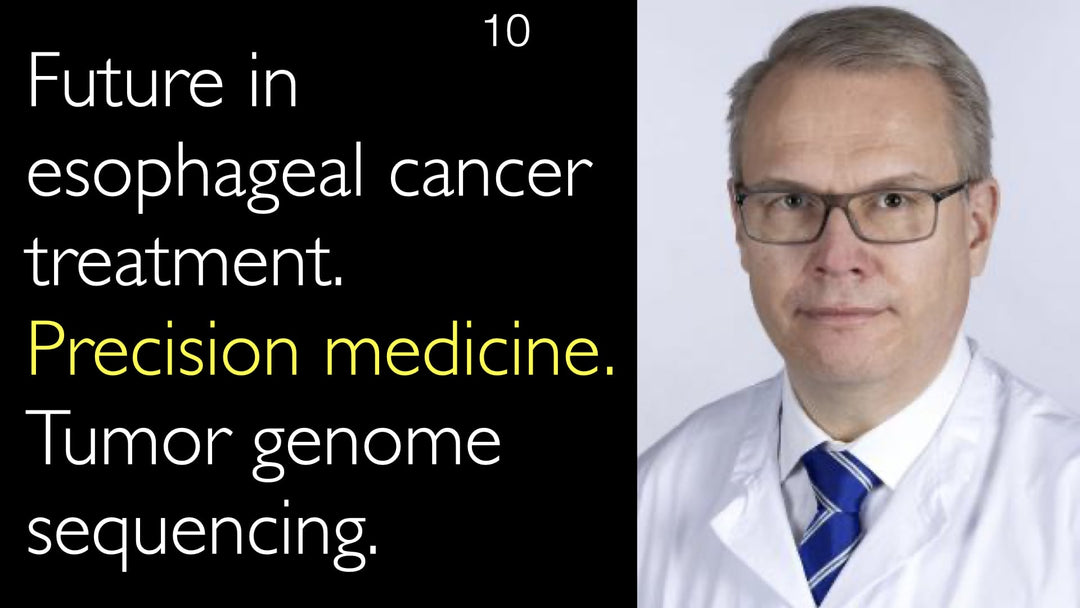“We will see wider adoption of molecular prognostic markers in colorectal cancer. Multidisciplinary approach is most important for better diagnostic decisions. Better patient selection for treatment of colorectal cancer. We will see in next five years new medications. They will act on WNT molecular pathways and on immune checkpoints. Colorectal cancer best treatment and cure. Advances in the future. Dr. David J. Kerr, MD. Leading colorectal cancer expert from Oxford discusses trends and progress of colon cancer treatment. Dr. Anton Titov, MD. Colorectal cancer future targeted chemotherapy options. Advanced stage 4 colon cancer molecular profiling for precision medicine and targeted chemotherapy. Second opinion confirms that colorectal cancer prognosis by molecular markers is correct and complete. Second opinion also confirms by PET CT and MRI that cure of colon cancer is possible even in advanced colon cancer. Best personalized medicine treatment for advanced stage 4 colon cancer with metastatic lesions. Second opinion helps to choose precision medicine and the best targeted chemotherapy treatment for stage 4 colorectal cancer with liver or lung metastases. Get second opinion on advanced colorectal cancer and be confident that your personalized treatment is the best. Dr. Anton Titov, MD. Best colorectal cancer treatment center for personalized medicine. Dr. David J. Kerr, MD. Video interview with leading expert in metastatic colorectal cancer treatment from Oxford. Colorectal cancer treatment advances. Future colon cancer treatment. Dr. Anton Titov, MD. What is the future in colorectal cancer treatment? There are so many advances. There is a targeted colon cancer therapy, colon cancer diagnostics, precision medicine. Dr. Anton Titov, MD. How do we see colon cancer treatment evolve in the next several years? Maybe on a 5- to 10-year horizon. What are the main challenges for colon cancer therapy and rectal cancer treatment? Where will most advances be in treatment of colorectal cancer patients? Dr. David Kerr, MD (Colon cancer oncologist, Oxford). Colorectal cancer has proven therapeutically challenging. Sometimes we look at adjuvant chemotherapy for colorectal cancer. There were no new colon cancer treatment medications in the last 10 or 12 years. The majority of colorectal cancer tumors are resistant to tumor modulation. Colon cancer is resistant to immunotherapy. People are excited about immune therapy for lung cancer, melanoma, renal cancer. Immune checkpoint modulation medications work in those cancers. Dr. David J. Kerr, MD. But immune modulation works maybe on a small subset of colorectal cancer tumors. But most colon cancer tumors are immune-evasive. Colorectal cancer treatment is a difficult situation to resolve. We will see more sophisticated modeling of prognostic molecular markers for colorectal cancer. We discussed genomic profiling of colon cancer tumors. We will see wider adoption of molecular prognostic markers in colorectal cancer. Dr. David J. Kerr, MD. We will use molecular tumor markers in selecting patients for adjuvant chemotherapy of colon cancer and rectal cancer. Dr. David Kerr, MD (Colon cancer oncologist, Oxford). There are interesting molecular pathways in colorectal cancer tumors. WNT signaling and enzymes involved in epigenetic control of colon cancer tumors. We will see in next five years new medication candidates that act on these molecular pathways in colorectal tumors. There are colon cancer treatment opportunities in "teaching old medications new tricks". Aspirin use with molecular markers in colon cancer treatment has good potential. Dr. David J. Kerr, MD. We will see more use of molecular tumor markers in conventional chemotherapy of colon cancer. We will use clever molecular biology. It will match existing chemotherapy medications with colon cancer patients. For them chemotherapy treatments would work best. We will see better imaging of colorectal cancer tumors. We will use PET-CT more. We now treat in multidisciplinary team setting metastatic colorectal cancer much more aggressively. We use radiofrequency ablation and surgery to treat metastatic colorectal cancer. Dr. David Kerr, MD (Colon cancer oncologist, Oxford). I think we need to better select patients for these very invasive procedures to treat colon cancer. We will see better use of diagnostic imaging and molecular markers. Dr. David J. Kerr, MD. We will support colon cancer treatment decisions better. Radiotherapy of colon cancer has improved. It is not a very large improvement. We can deliver radiotherapy to precise colon cancer tumor fields. We use radiation therapy more safely to treat colorectal cancer. It is a marginal source of benefits now. We will see more improvement in radiation therapy for colon cancer. Dr. Anton Titov, MD. Better understanding of the biology of colorectal cancer will bring new targets for medications to treat colorectal cancer. Better understanding of the microenvironment of colon cancer tumor will help in prevention of cancer recurrence. Dr. David J. Kerr, MD. Multidisciplinary approach is most important for better diagnostic decisions and patient selection for treatment of colorectal cancer. But we desperately need new medications to treat colorectal cancer. Now I do not see new medications on the horizon at all. Dr. Anton Titov, MD. It is very important work in colorectal cancer. It will require a lot of international cooperation too. Thank you very much for this very stimulating discussion about colon cancer treatment. It's very exciting research that you are doing together with your international colleagues. Your work in public health aspects of cancer treatment is especially important. Dr. Anton Titov, MD. Because colon cancer therapy success depends not only on "downstream" discoveries to treat colon cancer. It also depends on "upstream" factors of health policy and cancer care organization. This is important for all colorectal cancer patients around the world. Dr. Anton Titov, MD. Thank you very much for this conversation. Hopefully we will be able to return to you in the future! Dr. David J. Kerr, MD (Colon cancer oncologist, Oxford). Thanks again! Colorectal cancer best treatment options will include precise tumor profiling and selection of chemotherapy based on tumor mutations. Multidisciplinary team.
Plus de Future of Medicine
Plus de Diagnostic Detectives Network
You may also like
Vu récemment







